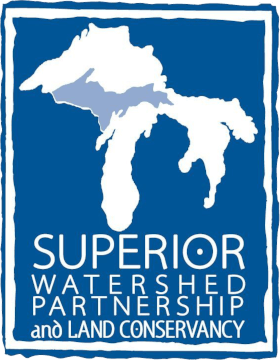Superior Watershed Partnership is accepting public comment for updating the Eagle’s Nest Community Forest Plan on Lake Superior in the Upper Peninsula
Released on 7/20/20 | View the Full Draft Plan
The Eagle’s Nest Community Forest is located just north of the City of Marquette in the Upper Peninsula of Michigan, and contains 17.83 acres of old growth northern forest and coastal wetlands bordered by 1,130 feet of Lake Superior shoreline. Previously owned by the same family since 1870, the Superior Watershed Partnership (SWP) acquired the property through the Community Forest Program (CFP) to protect it from future development and preserve it in order to provide numerous community benefits in perpetuity. The community forest will provide multiple educational and recreational opportunities for area residents and visitors year-round including hiking and cross country ski trails, nature watching opportunities, and public access to unique and varied coastal ecosystems. The SWP acquired the $800,000 parcel using $400,000 in funds provided by the CFP.
The Community Forest Program (CFP) is a competitive grant program that provides financial assistance to tribal entities, local governments, and qualified conservation non-profit organizations to acquire and establish community forests that provide community benefits. Community benefits can include economic benefits through active forest management, clean water, wildlife habitat, educational opportunities, and public access for recreation.
SWP has developed a DRAFT Community Forest Plan for the Eagle’s Nest Community Forest and is soliciting public input. Public comments regarding the plan will be accepted through email or mail at the following address until August 14th, 2020.
Please use the subject line Eagle’s Nest Community Forest.
Email: mindy@superiorwatersheds.org
Marquette, MI 49855
The Superior Watershed Partnership (SWP) is a local Great Lakes non-profit organization in the Upper Peninsula of Michigan. All SWP programs are locally coordinated SWP programs (ie; non state or federal).
Please contact the SWP to learn more about the community forests at:

